24 August, 2017
Pedro Delgado: “Los Machucos will decide La Vuelta this year”
His is one of the mythical faces of cycling in Spain: his victories are still present in the collective imagination of fans, and for more than 20 years now, he has communicated the excitement of the Vuelta a España and the Tour de France with his television commentary. We spoke with ‘Perico’ about the current edition of La Vuelta, cycling and one of his most popular projects: the ‘Pericopuertos’ (“Perico mountain passes”).
Your career includes 11 Vueltas a España as a rider and more than 20 years as a commentator. Which is the edition of La Vuelta that you remember most fondly?
For me it’s clear: the first Vuelta a España I won in 1985 with Orbea. For several reasons. On the one hand, because I felt like the year before I should have won La Vuelta, because I was the strongest or at least I considered myself to be the strongest and I wasn’t able to pull it off, so I had that thorn in my side. On the other hand, because that race in ‘85 was tough and things got so complicated for me that I had practically no chance at the overall, since I had lost a lot of time on Robert Millar. Then came a mountain stage on my home turf, which pushed me to try to go for the stage win. What originally was a fight for a stage win became an unexpected victory in the overall classification. This goes to show that you must never give up hope, because you never know where you’re going to win a victory.
That race was special for you as a rider, but of all the ones you’ve related as a commentator, which comes to mind? Because it was exciting, unexpected or because something unusual happened?
La Vuelta that Alberto Contador won against Joaquím Rodríguez in 2012, where Valverde was also in on it. Especially because it was a Vuelta where something happened every day and there were many alternatives. What I liked best about that race is that it generated a lot of conversations at the bar. That meant that it was a Vuelta that struck home with many fans and generated a lot of interest… A bit like what happened in ‘85, which was very closely followed and talked about. When you see the passion with which the fans experience this type of race, it’s a real pleasure to dedicate yourself to the world of cycling.
“The people want movement, something spectacular. A team that wins with a very set strategy can bore people a bit.”
When the bars are all abuzz and it’s what everyone is talking about, it’s a good sign that the race is an exciting one…
Yes, and what’s more, the opinion I might have is a more technical one, and a team that wins with a very set strategy can bore people a bit. The people want movement, something spectacular… and in that Vuelta, with Alberto, they got it.
One of your best-known facets, besides being a commentator for RTVE, is that of ‘on location’ analyst of the legendary mountain passes in Spain. How and when did the idea of the Pericopuertos (‘Perico Mountain Passes’) come about?
I’ve lost track of the number of years I have been doing what we call the “Pericopuertos.” It came about a few years ago with RTVE, and the idea was to show the fans, in a calmer way, the progression of the mountain pass, since the frantic pace of competition on race day many times does not allow you to notice how hard it really is; since they are professional cyclists and all very good, it might seem to the viewer, like I say, that they are flat (he laughs). That's why… by me doing them in this other way with a guest cyclist or ex-cyclist, it makes it possible to better appreciate the difficulty of these ramps, the changes in elevation, etc.
This year I’ve done Pericopuertos with Alejando Valverde, Luis Ángel Maté and Purito Rodriguez. We both go up and I’m gasping for breath and the others here, they talk and talk (he laughs)… They wait for me, I try to keep up, I’m worn out and they act like it’s nothing.
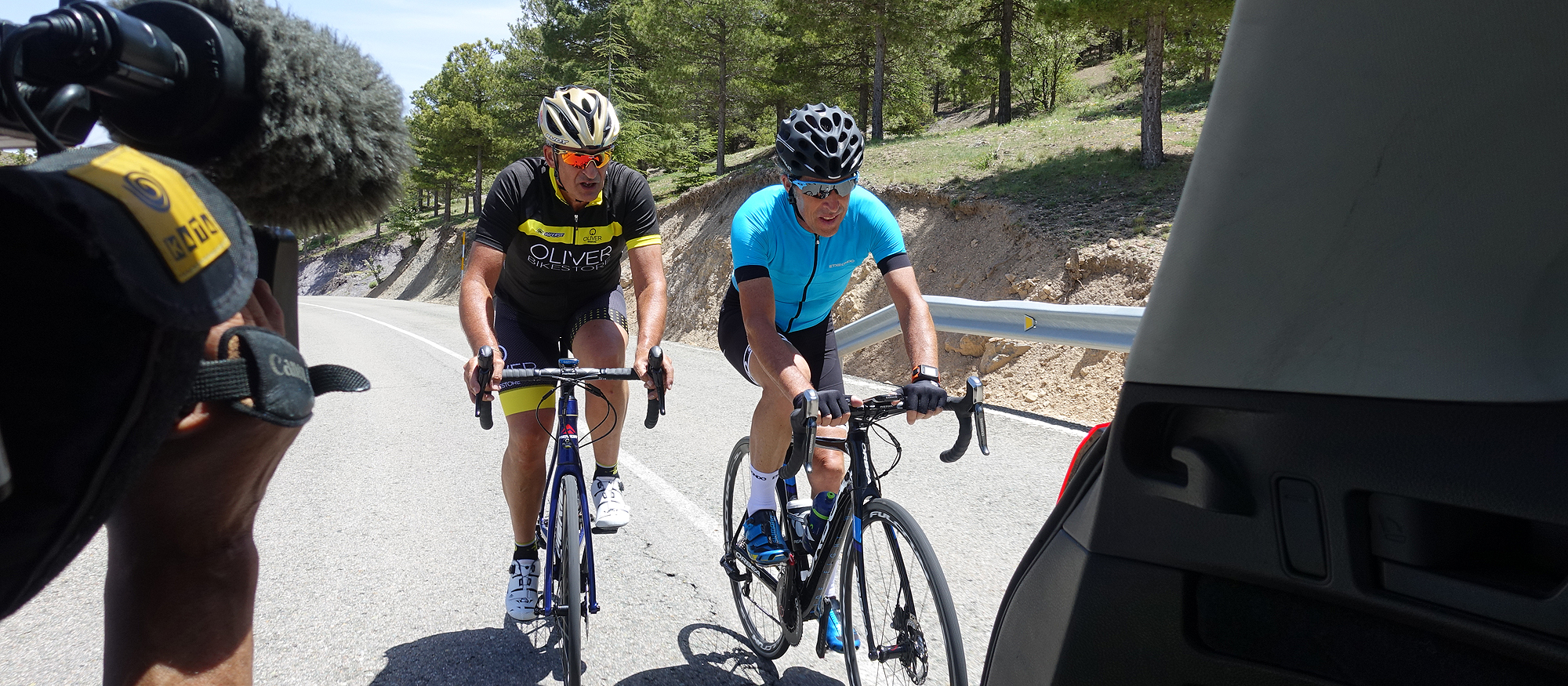
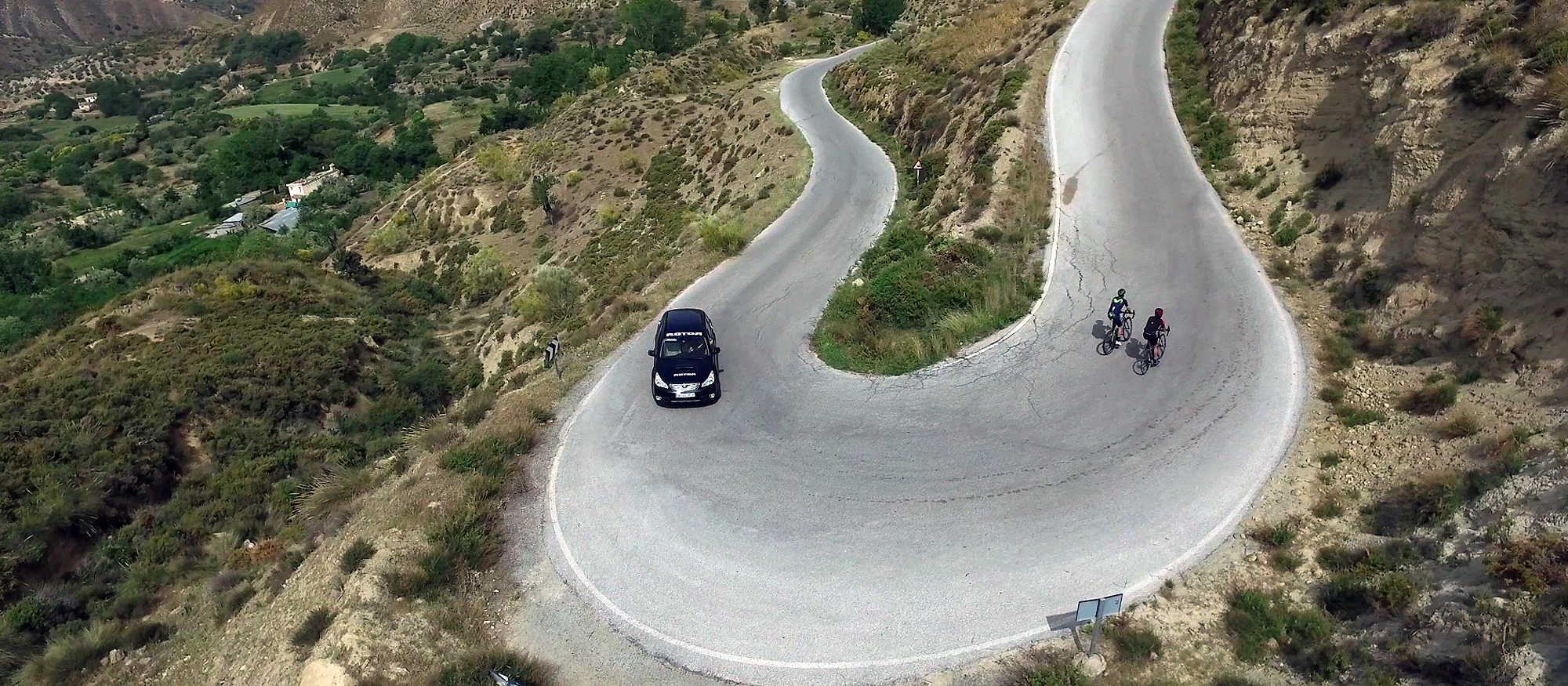
Of your climbs this year, which made you suffer the worst?
This year it was Los Machucos, which was the only one I had never done. It’s a fledgling mountain pass, one of those that La Vuelta usually includes, with very difficult 20-22% ramps that range from 500 meters to 1 kilometer, with a narrow path and an irregular surface. It’s a ‘puertuco’, as they call it there in Cantabria, that will decide this year’s Vuelta, especially because it comes after the long time trial, and the riders in the general classification will be running on empty. These ramps do away with the explosiveness in your legs…they’re a tall order.
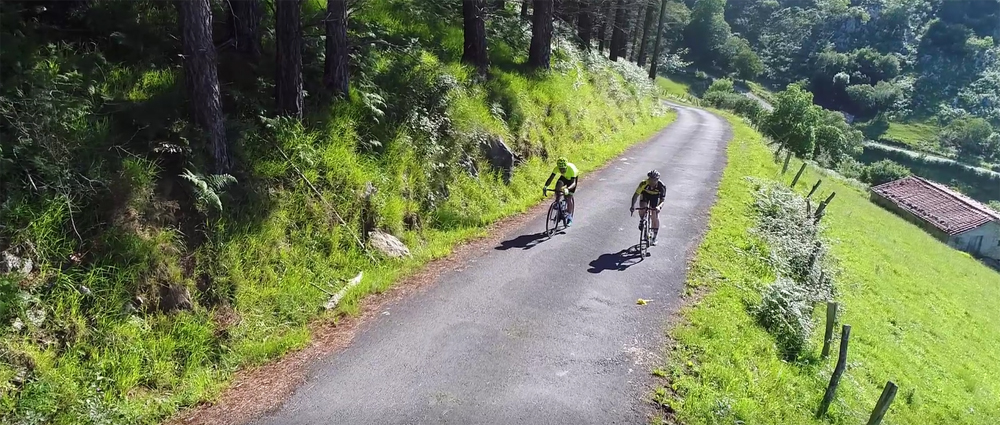 |
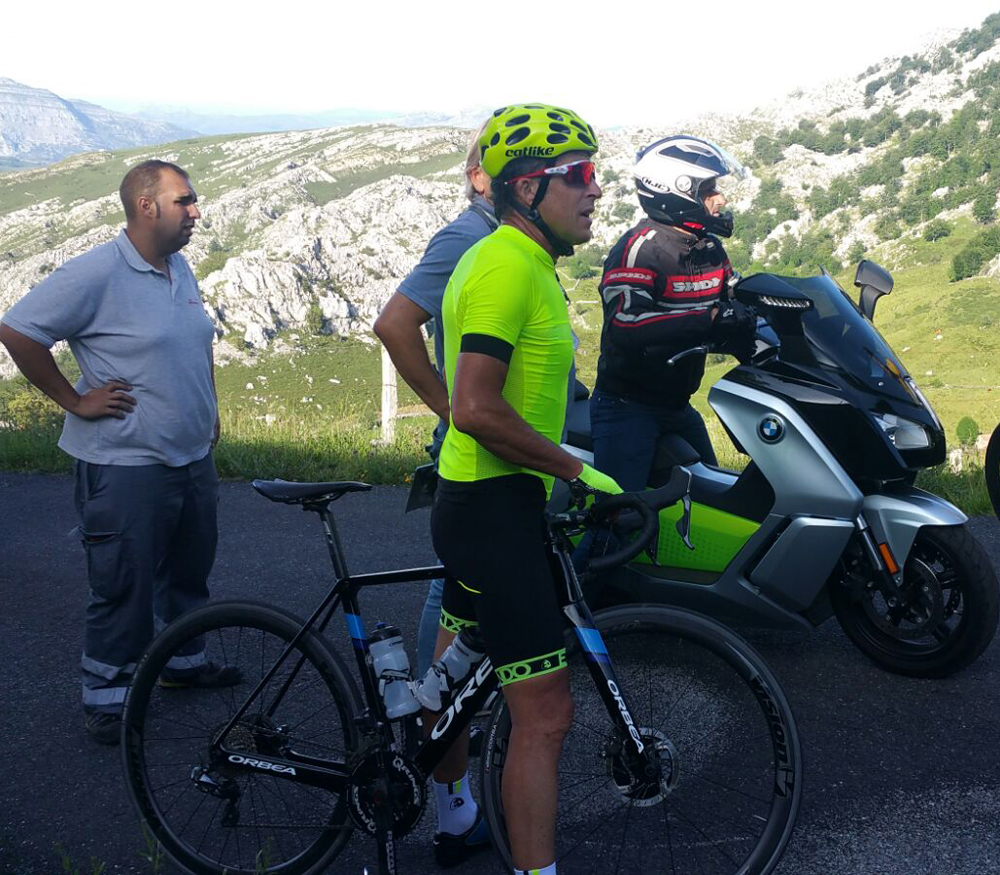 |
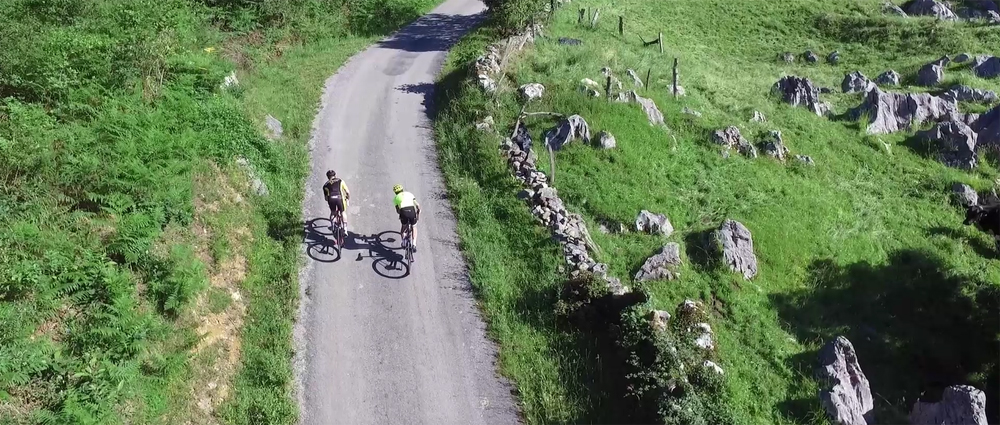 |
You’ve done the Pericopuertos on an Orca with disk brakes. What was your experience like on the bicycle? How did the bike behave?
I always have a good feeling when I ride an Orbea, I don’t know if it has to do with the fact that it was my first bike and that I also won my first Vuelta on one. The truth is that I like it because I feel that it's very safe and consistent on the descents. As far as the disk brake goes, I had already tried it last year, and I noticed an improvement in the braking system in the 2017 version. The feel is very pleasant when it comes to braking and I left frankly satisfied with it.
Are you a fan of disk brakes? What do you think they have to contribute?
Here, I always tell those who ask me that the key is in whether you have to change bikes. If it’s just for the brakes, no. If you have the intention of changing bikes and you’re a cycling tourist, I think it’s a good thing. Especially if you live in the north or a very rainy area, since they respond very well in the rain. It’s a great advantage, because you get better safety when braking and everything is more comfortable.
“If you have the intention of changing bikes and you’re a cycling tourist, i think disk brakes are a good thing: you get better safety when braking and everything is more comfortable.”
Let’s talk a bit about this year’s edition of La Vuelta: Who are your favorites? What do you think are the key stages that will decide La Vuelta a España?
The favorites, well, those that everyone is saying, starting with Froome, the cyclist to keep an eye on, even though Nairo Quintana beat him last year; and in my heart, I would like to say Alberto Contador. Saying goodbye to cycling is a very important cyclist for Spanish and international cycling, because of his philosophy of cycling, with an excellent understanding of the race and with a devastating and unreserved attack from far behind. I would like for him to win…but there will be other riders who also have the desire and a lot to say in this race.
We talked about Los Machucos earlier… Any other key?
It's difficult to make predictions in the Grand Tours. Last year, in the Formigal stage, when I thought that nothing was going to happen beyond a fight for the stage, it ended up finally being important, and more so with Contador in the middle of it… In the end, that conditions everyday life and how the riders are doing in terms of strength and state of mind of the riders. I like La Pandera a lot, as well as the Almería stage… we’ll have to see.
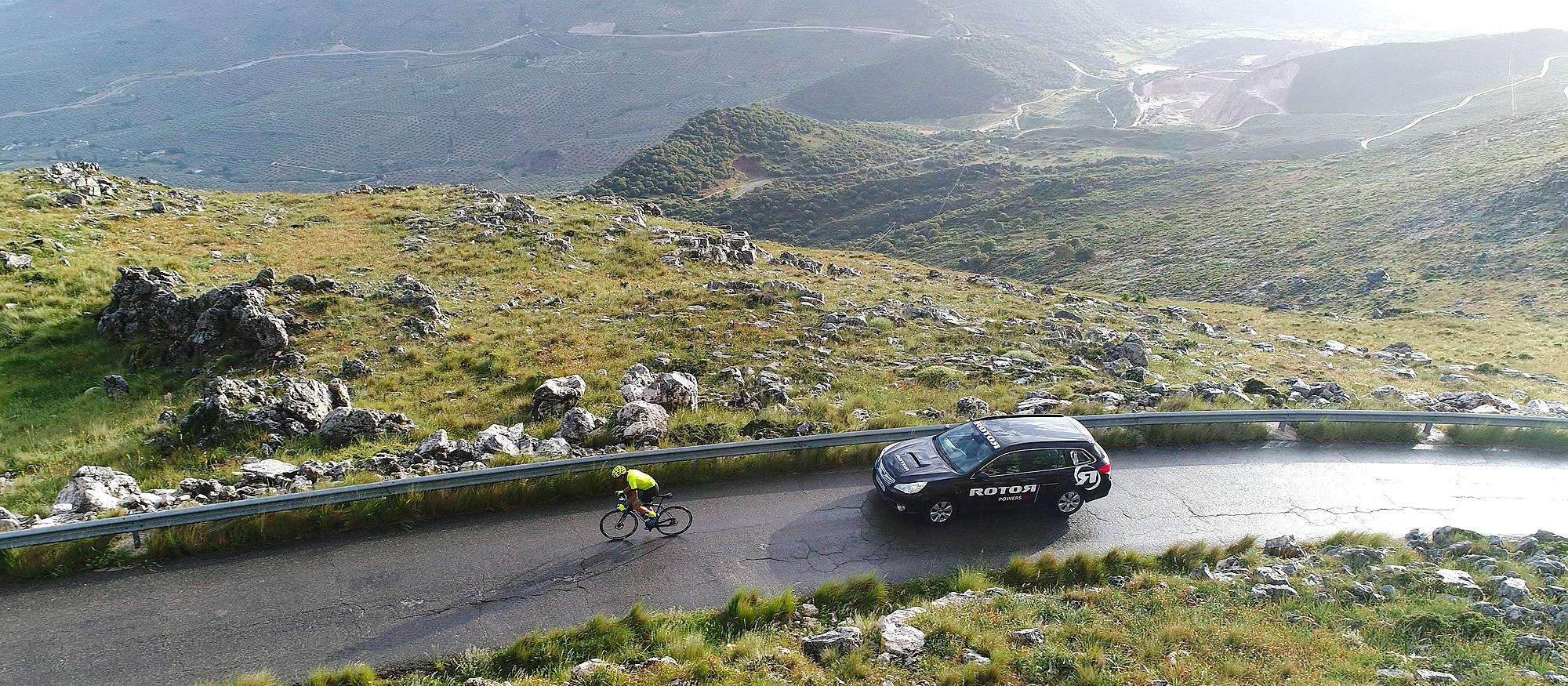
What's a typical day like for you during La Vuelta? So many hours on live TV, are you constantly thinking about what you're going to say, or does it just occur to you?
It’s been a lot of years in front of a microphone. You already know a lot of people, the terrain, etc. and you just need to update yourself a little and keep up on what is happening. During breakfast, for example, you turn to your contacts to see how the cyclists are, if anyone is weak physically or emotionally… that also gives you material to talk about. Besides, with all this on the Internet, you don’t need to carry around a lot of papers, because right away you can consult the data and refresh your memory. I still keep a little file with details about the riders (injuries, how they are doing that season, etc.), especially anecdotes or ‘rumors’… so to speak; information that goes beyond the pure statistics offered by an infinite number of websites these days.
Is there any mountain pass that you have not yet climbed, but you’d like to do?
Well, I’m not obsessed with visiting mountain passes. What I like is to ride bicycles and, in particular, to explore the area, regardless of the difficulty or length of the mountain pass. Of all the years I’ve been in this ‘mess’, what has excited me the most is visiting the area of the Ancares, a spectacular area for riding a bicycle; it’s wild and was totally unknown to me until La Vuelta went there.
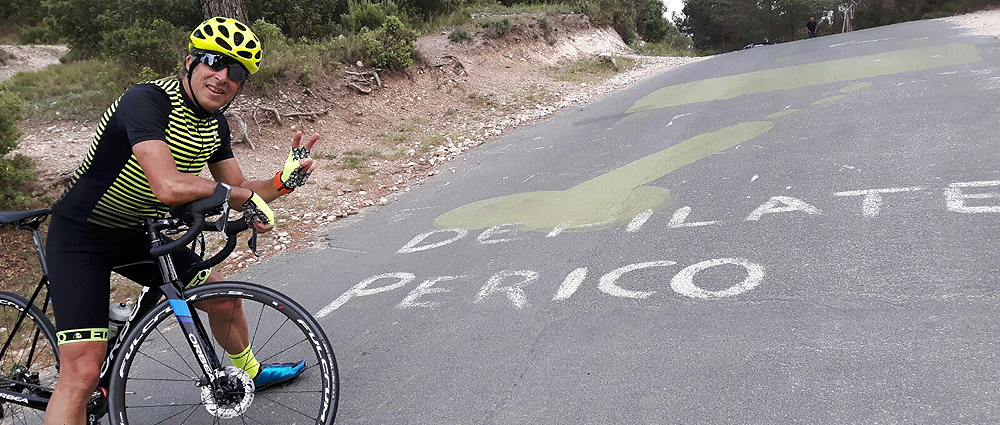 |
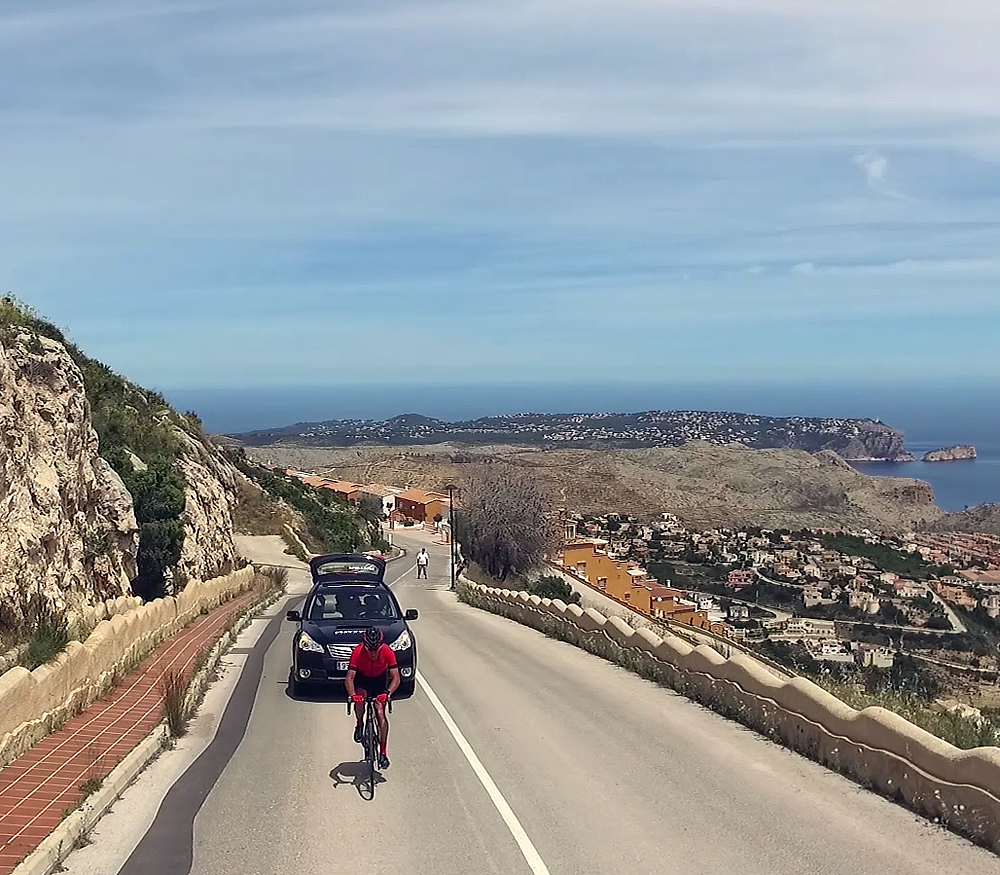 |
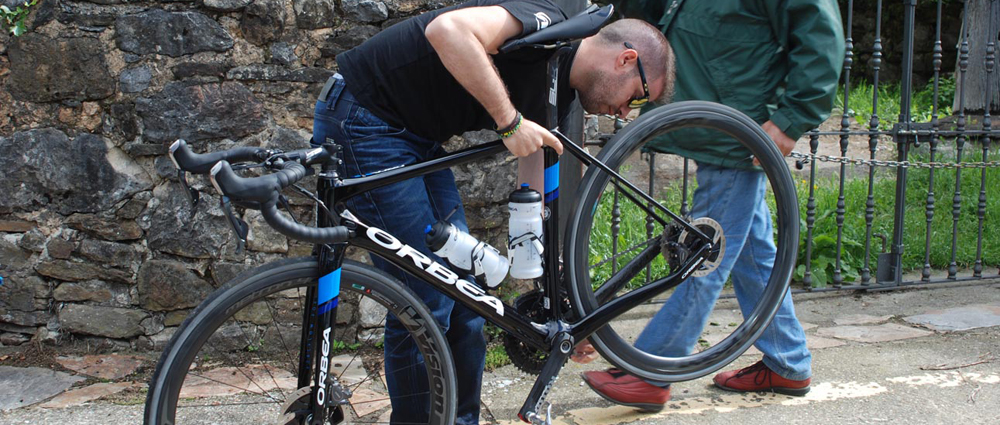 |
“People send me a lot of suggestions for mountain passes, thinking that i can include them in the route of la Vuelta.”
Cycling is also a way to get to know the surrounding area and new areas to explore…
Exactly. Many people send me messages: “Perico, you have to see this mountain pass or that one” … People send me a lot of suggestions, thinking that I can include them in the route of La Vuelta. But what I want is to visit the area! Besides, when I head out on my bike, I don’t go near the mountain passes: I’m a rider of flat roads. Although during my time as a professional rider, I was known for my skills in the mountain, now I have to psych myself up to climb a mountain pass. On the other hand, people thing, “Look, here’s a pass for Perico to climb.”There’s no fooling me there (he laughs), there’s no seducing me there… I leave that for the Pericopuertos (laughs).
These contributions are good, because they enrich the races…
The idea that Javier Guillem, La Vuelta director from Unipublic, has is very positive for cycling. Thanks to him and cycling, we're discovering some incredible corners of Spain. The locals know them, suggest them and that desire to share information and routes and Javier’s willingness to listen to these proposals is very nice.